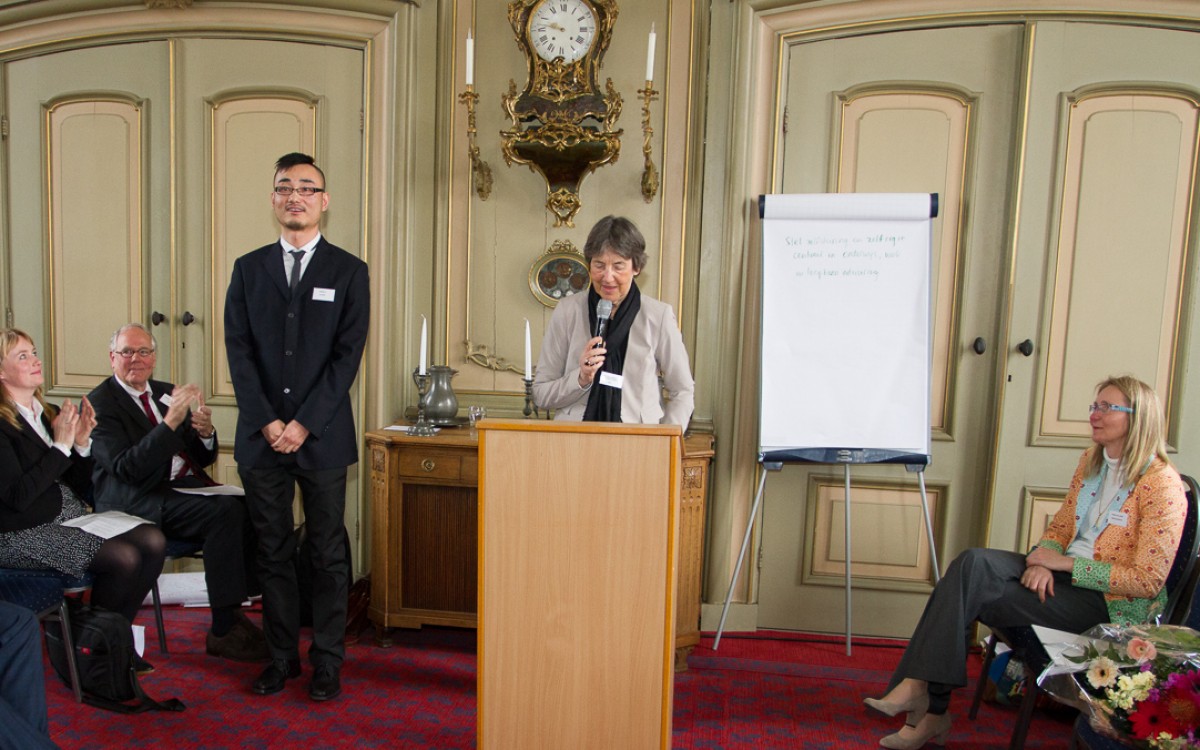All of us have been told to help other people in our life. "Helping" has become the essence of the morality in our society, which is done sometimes without conscious consideration. Helping means you do something extra to other people, often beyond your social duties or sacrificing your own comfort or benefits. However, does helping others only mean sacrificing? If helping others is at the cost of our own benefits, why can most of us, partly selfish in nature as human being, constantly give help to others so that we live in a relatively peaceful and sympathetic world?
I kept asking myself these questions when I was working in stated owned Chinese company and international corporation. My colleagues often helped me with different types of assignments as I was junior in the office, no matter how busy they were or whatever urgent tasks at their hands. At the time, I felt I couldn't help them back and sometimes indebted to my warm hearted colleagues.
So, when I needed to propose the topic for my master thesis, I got the chance to look for the answers by myself. I asked the question: what is the consequence of helping others in workplace? After reviewing literature, I found out researchers had demonstrated helping others in workplace can bring us a good image and therefore more promotion, better performance appraisal and so forth. However, our life is not about working. We have family and leisure time. What is consequence of helping others to our family life, if any?
Helping others can make us feel accomplished, in another simple word, feel good. When we feel good, the positive emotions can spillover so that we smile to our family after one day tiring work. In a long time, we may feel we are important to others, and therefore gain self-esteem. As our self-esteem increases, we are more able to love our beloved ones better, and live a happier family life.
Besides, helping others in workplace may also bring us practical benefits to our family life. For instance, someday we may receive some insider information with regard to our children's schooling, or good reference for our children to enroll into university. We may also learn more skills through helping others. Helping our supervisors may let us learn some managerial skills, which can be applied to manage our children.
As a result, helping others in workplace, regardless of coworkers or supervisors, can positively influence family life, elaborating the term "work to family enrichment".
This is the idea " helping others, someday others will help you". It is a reciprocal process that exists in all kind of relationship, including employment relationship. Nowadays, many Dutch companies sign indefinite contract with employees, which enables the idea to come true. However, not everywhere in this world is the same as European countries, for example, China.
China has a rather different culture and economic system. The workforce is larger and the employment relationship is more likely to break. If helping others in workplace can bring some benefits to family life, does it hold the same in China as in the Netherlands?
Chinese culture is more collectivistic, long term orientated and masculine. They tend to define themselves by referring to "others", saving and accumulating resources to attain big goal and strive to achieve and climb the social ladders. Besides, the superior in the power system is distant from the inferior.
In collectivistic culture, people tend to blur the boundaries between different areas of life, e.g. work and family because they have "others" in their self-construal, so that when they help others and others help back someday, they may feel appropriate to involve family matters. As a result, Chinese may experience more work to family enrichment than their Dutch counterpart. However, as Chinese strive to achieve in career, they may not let family matters interfere with work so they experience less work to family enrichment. It is difficult to conclude whether Chinese or Dutch experience more work to family enrichment when help others in the workplace to the same extent.
Nevertheless, Chinese do show more help towards their supervisors than their Dutch counterpart. The rapid developing economy has pushed every Chinese to achieve career success in a short time. It is practically beneficial to help supervisors, as supervisors often impact on career success decisively. In China, relation between people can change nature, from "acquaintance alike" to "kinship alike" if appropriate interpersonal interaction is strategically used. Helping supervisors in China may change the supervisor's perception of his or her relation with the helper to more intimate level so that promotions or salary increase is more likely to happen to the helper.
I did this study in China and the Netherlands. In the Netherlands, as I don't know many people, I asked people on the train to fill my survey. People were so kind that I could finish my study on time. I owe to these nice people so I hope the results of this study can bring them useful knowledge----Give roses, fragrance left in your hands.
Chang Lu schreef een winnende master thesis 'The Relationship between Helping Behavior in Workplace and Work to Family Enrichment: A Multi-foci and Dual-cultural Study.'

Reageren